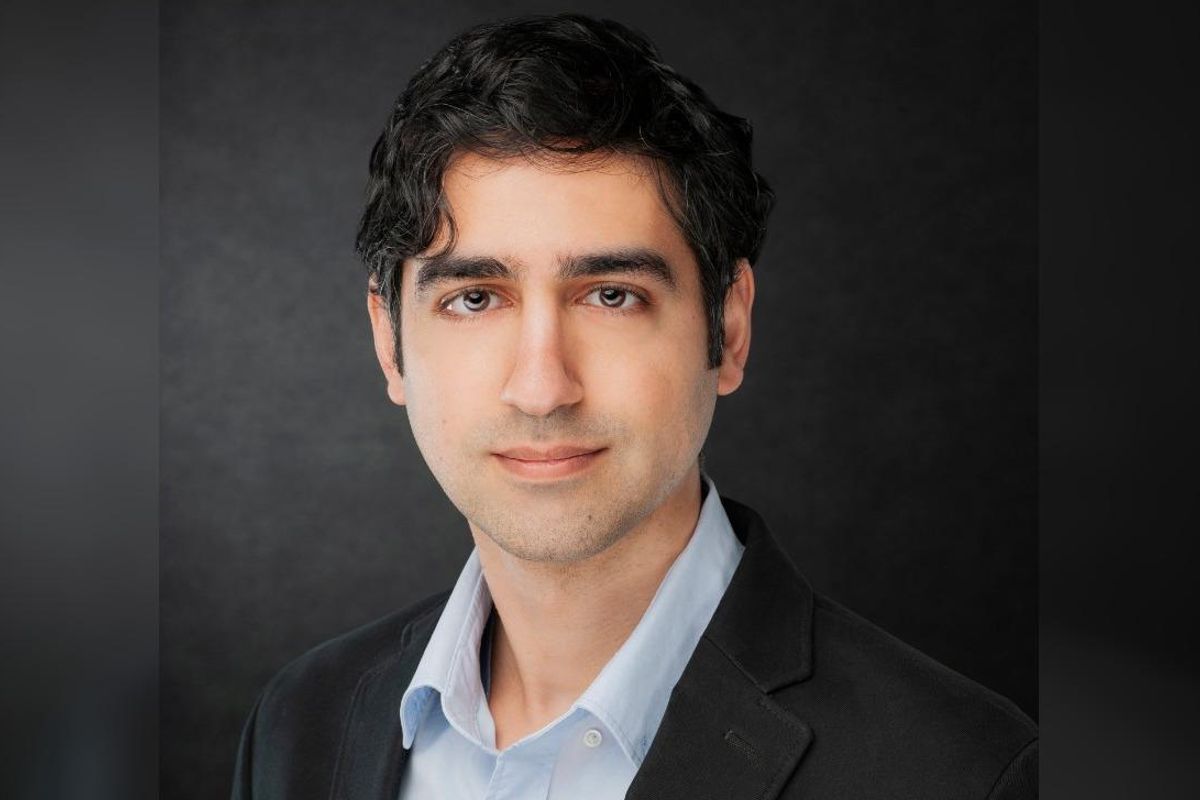How this Houston innovator's tech is gearing up to impact EV charging, energy transition
houston innovators podcast episode 172
With more and more electric vehicles on the road, existing electrical grid infrastructure needs to be able to keep up. Houston-based Revterra has the technology to help.
"One of the challenges with electric vehicle adoption is we're going to need a lot of charging stations to quickly charge electric cars," Ben Jawdat, CEO and founder of Revterra, says on the Houston Innovators Podcast. "People are familiar with filling their gas tank in a few minutes, so an experience similar to that is what people are looking for."
To charge an EV in ten minutes is about 350 kilowatts of power, and, as Jawdat explains, if several of these charges are happening at the same time, it puts a tremendous strain on the electric grid. Building the infrastructure needed to support this type of charging would be a huge project, but Jawdat says he thought of a more turnkey solution.
Revterra created a kinetic energy storage system that enables rapid EV charging. The technology pulls from the grid, but at a slower, more manageable pace. Revterra's battery acts as an intermediary to store that energy until the consumer is ready to charge.
"It's an energy accumulator and a high-power energy discharger," Jawdat says, explaining that compared to an electrical chemical battery, which could be used to store energy for EVs, kinetic energy can be used more frequently and for faster charging.
Jawdat, who is a trained physicist with a PhD from the University of Houston and worked as a researcher at Rice University, says some of his challenges were receiving early funding and identifying customers willing to deploy his technology.
Last year, Revterra raised $8.5 million in a series A funding round. Norway’s Equinor Ventures led the round, with participation from Houston-based SCF Ventures and At One Ventures. Previously, Revterra raised nearly $500,000 through a combination of angel investments and a National Science Foundation grant.
The funding has gone toward growing Revterra's team, including onboarding three new engineers with some jobs still open, Jawdat says. Additionally, Revterra is building out its new lab space and launching new pilot programs.
Ultimately, Revterra, an inaugural member of Greentown Houston, hopes to be a major player within the energy transition.
"We really want to be an enabling technology in the renewable energy transition," Jawdat says. "One part of that is facilitating the development of large-scale, high-power, fast-charging networks. But, beyond that, we see this technology as a potential solution in other areas related to the clean energy transition."
He shares more about what's next for Revterra on the podcast. Listen to the interview below — or wherever you stream your podcasts — and subscribe for weekly episodes.

 Ben Jawdat is the founder and CEO of Revterra. Photo via LinkedIn
Ben Jawdat is the founder and CEO of Revterra. Photo via LinkedIn Apple doubles down on Houston with new production facility, training center Photo courtesy Apple.
Apple doubles down on Houston with new production facility, training center Photo courtesy Apple.